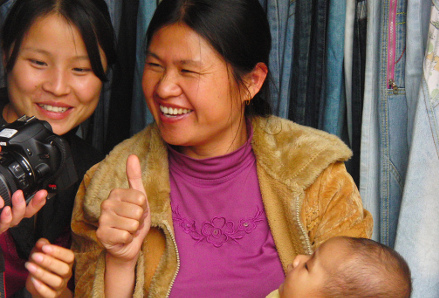A trio of tropical diseases
In November, the news website Vox published a fascinating story: Travel writer Henry Wismayer’s personal experience of getting typhoid, dengue, and schistosomiasis in the same year. His story piqued our interest – after all, one of our goals is to prevent these illnesses in travellers.
Here’s a summary of the story, although we encourage you to read the full article on Vox.
While travelling in Uttarakhand, India, Wismayer fell ill with typhoid but recovered with rest and treatment with antibiotics. A few weeks later in Hue, Vietnam, he came down with a severe bout of dengue fever and was hospitalized for two weeks. (If you’ve ever doubted the importance of preventing mosquito bites, Wismayer’s graphic description of dengue fever will have you reaching for the mosquito repellent.) He recovered and returned to the UK, only to discover that he had contracted schistosomiasis during an earlier visit to Africa’s Great Lakes region.
Being hospitalized in Hue was a reality check for Wismayer. After he recovered from the worst of the fever, he was haunted by what he saw through the window of his private room, a ward where dozens of local patients lay waiting for care from overworked nurses. He also recognized the global burden of neglected tropical diseases (NTDs), which affect over one billion people worldwide. Wismayer puts the spotlight on his privilege as a traveller and disparities in healthcare.
These unfortunate experiences prompted him to consider travel, health, and NTDs from a different perspective. Wismayer forces us to ask ourselves: What role do travellers play in global health?
Traveller’s privilege
Acknowledging privilege is not about making travellers feel guilty. It’s about being conscious of what we can do to improve healthcare in the communities we visit.
To a certain degree, all travellers are privileged. We have options if we fall ill: For a minor illness, we can choose to seek treatment in a different clinic, city, or country. We may also be privileged in the local healthcare system. When visiting another country (particularly low or middle income countries), travellers may receive a higher standard of care, more attention, or more medical resources than local patients. With resources like hospital beds, clean needles, medication, and staff time in short supply in many places, a hospitalized traveller can put additional stress on the local health system.
Responsible travel and your health footprint
Focus on staying healthy when you travel so that you can leave the smallest health footprint behind. We define it as the amount of local health resources you use during your trip. There are two ways to minimize your health footprint: Being informed about health risks and being proactive about preventing them.
There will always be instances when travellers fall ill abroad, but preventing illnesses when possible helps us avoid using scarce medical resources unnecessarily. You can take steps to travel responsibly by getting the recommended vaccines, taking insect bite prevention measures, and taking appropriate antimalarials if they’re recommended for your trip.
In many countries, disparities in healthcare are also worsened by clinicians’ limited access to continuing medical education. As part of our effort to advance global health, we award travel medicine scholarships to doctors and nurses from countries where travel medicine is not a well-established field. Scholars go abroad to study and train in travel medicine. Upon completing their course, they return to their home countries to train their colleagues in travel medicine, improving healthcare for local patients and travellers. This is where IAMAT scholarships differ from typical programs in tropical medicine: Our scholars are directly combatting brain drain by bringing knowledge back to their communities and building capacity in the local health system.
Henry Wismayer’s story is a powerful reminder of how travel is intricately connected to global health. At IAMAT, we counsel travellers to be proactive: You can stay healthy and leave the smallest health footprint behind by being informed about health risks and taking precautions during travel.
What role will you play in global health?
By Daphne Hendsbee.
Photo by Judith Purcell.



